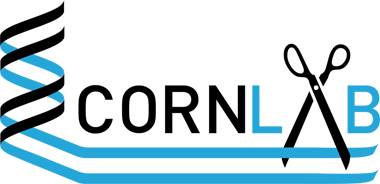Backpacking season
It’s important to spend time outside the lab. And before you ask, that’s not why the blog has been dormant. I was teaching this last semester (a general biochemistry lab), plus working with members of my lab to get several papers out the door. Stay tuned for more on that front. Next time I’ll go back to CRISPR blogging. But for now, let’s talk about staying out of ruts.
The IGI/Berkeley isn’t my first group leader rodeo. I spent several years in biotech/pharma, and while there I learned an important lesson the hard way. It’s very important to spend time outside of the lab thinking about something other than science. This is not the advice you’ll hear from some mentors, especially when you’re starting out as a group leader. But it’s oh-so-important for the marathon of a career in science.
When you’re just getting started, you’ll spend a lot of time executing. Mentors often stress the importance of execution to the detriment of everything else. But there’s a line to draw, and it is entirely possible to spend too much time doing and thinking about the science that’s right in front of your face. Why?
Execution vs Inspiration
As scientists (and in many other professions), we aspire to do something important. This takes creative and surprising ideas – approaches or entire projects that creatively solve difficult problems. It’s very hard to have surprising ideas when you’re in execution mode. Personally, it’s even hard for me to have surprising ideas at scientific conferences. While scientific meetings are great places to hear about diverse science and even synthesize ideas, I rarely find myself coming up with anything radically new. I learn a ton at meetings, but mostly I’m putting facts in my brain. For me, creating a big idea from scratch takes backpacking.
When I go backpacking with my wife, we typically spend 10-15 hours per day hiking. She’s also a scientist, but working in a totally different field than myself (infectious disease epidemiology). 10-15 hours is a lot of time for us to talk about far-ranging ideas in each other’s fields, but also to chat about ideas other than science and to let our minds wander. For the first half day or so, I find that I’m still thinking about immediate problems in the back of my mind: how do I write the next section of this paper, or how do I help a postdoc design this next experiment. But after that, I stop trying to actively fix problems. Sometimes thinking about other things leaves my brain in a place I didn’t expect. Sometimes those are good ideas. I don’t always have good ideas while backpacking, but when I do they tend to be things I never would have thought of at the lab. By the end of my last backpacking trip, I had mentally outlined two R01 grants and realized out an interesting angle for a biotech NewCo I’m starting.
Other types of backpacking
Maybe your version of backpacking is a pottery class, or binge-watching Netflix, or scuba diving. But having something like that and making enough time for it is super important. Having new ideas lets you see ways around problems rather than through them. And perhaps more importantly, it will save your sanity. Execution mode is hard and stressful. Creative mode is fun and relaxing. To avoid burn-out, mix execution with creativity. Reserve significant time for fun on a regular basis. You’re going to be doing something your entire life. Hopefully your work is globally fun, but it won’t always be locally fun. Try to make your life globally fun. But if you’re a workaholic, rest assured that fun will make your work better. And it will hopefully make you a happier person as well.





Proud Mama, love seeing my son has his head on straight. You scientists do such amazing work. But you have to stop and replenish (refuel) whatever you call it. Thanks for saying it so eloquently, Jacob!